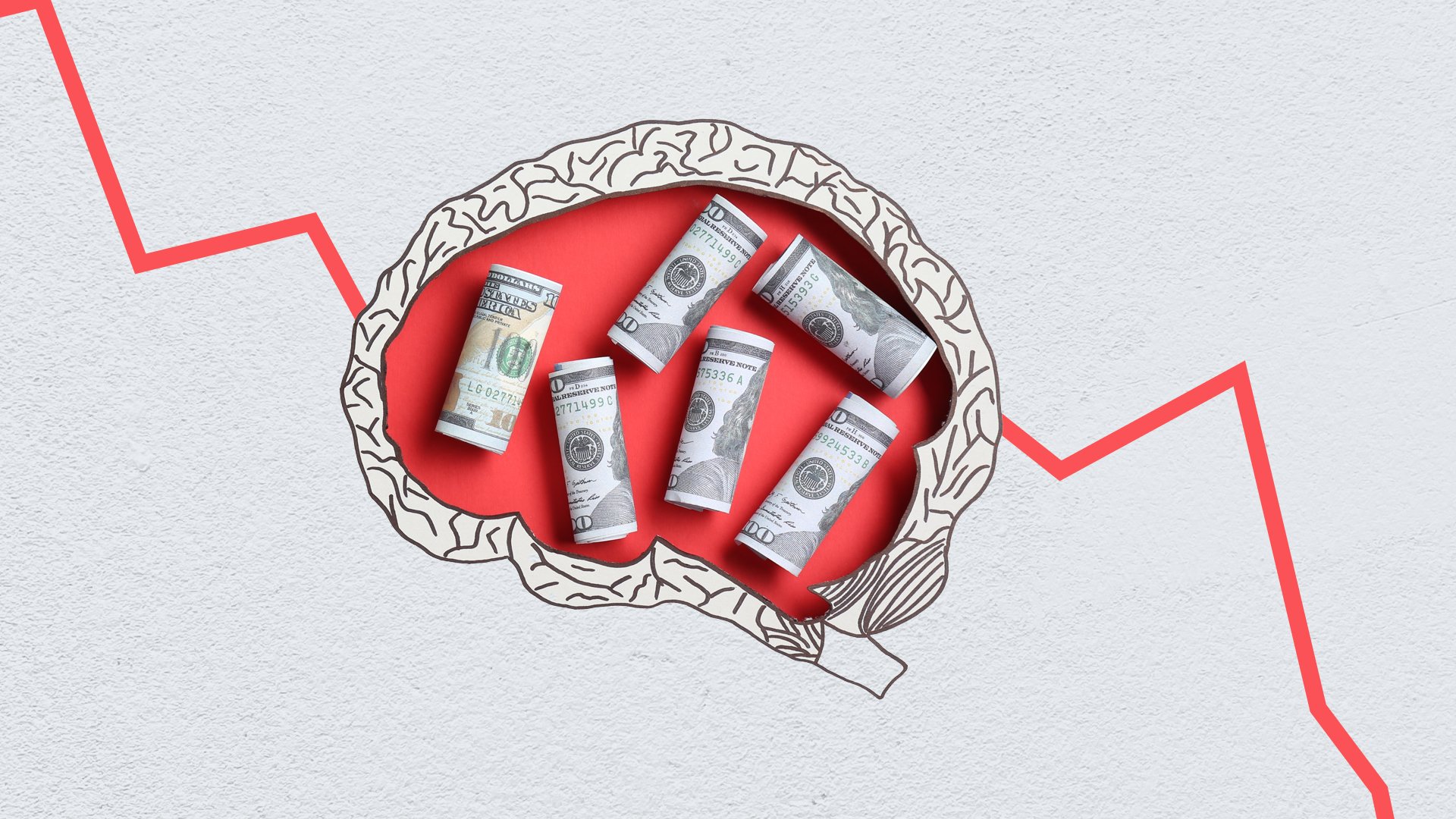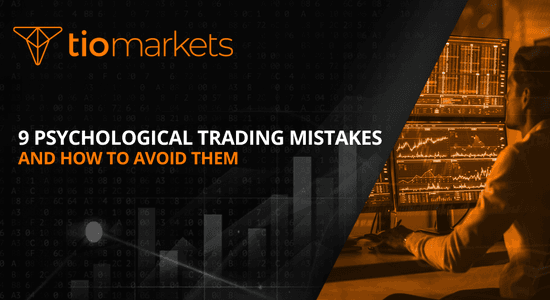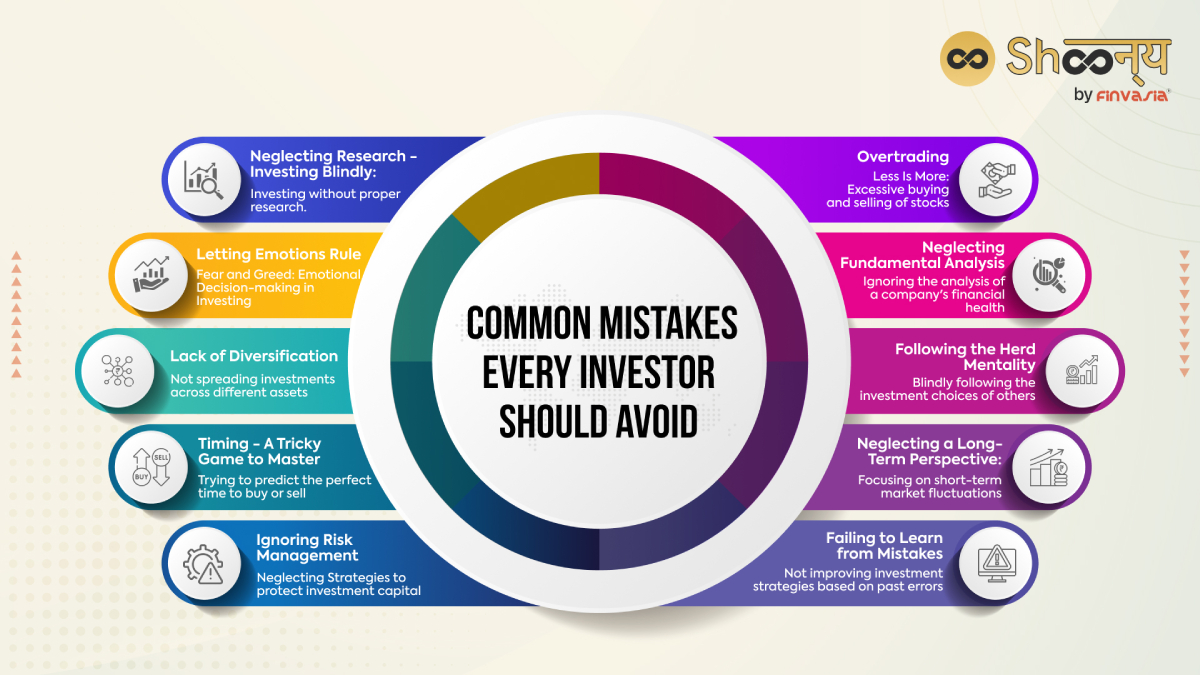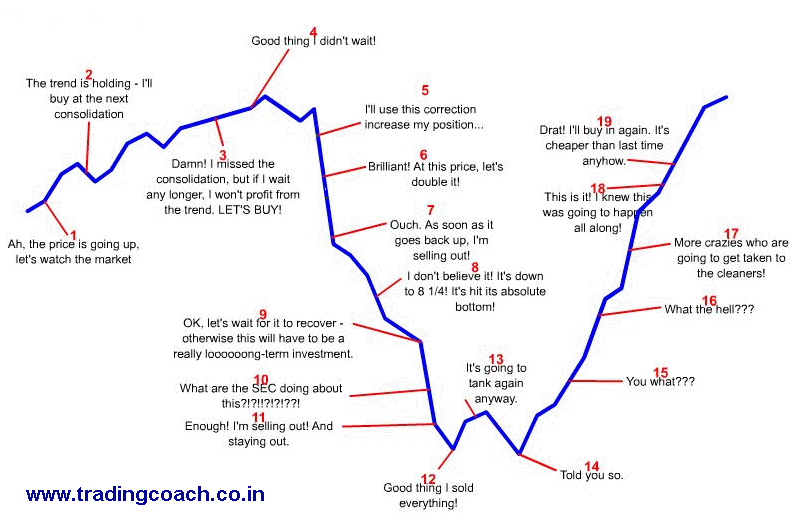Opening Statement: Trading is tough, and it’s easy to let emotions get the best of you. From chasing losses to holding onto bad trades, psychological mistakes can seriously hurt your trading success. If you’ve been trading for a while, you know that it’s not just about understanding the market; it’s about managing yourself. Your mindset can make or break your trading journey.
Problem Statement: Traders often fall into mental traps that interfere with their ability to make rational decisions. These traps aren’t just annoying – they can lead to heavy losses and missed opportunities. Fear, overconfidence, impatience, and emotional trading can cloud judgment and destroy your trading performance. Recognizing and fixing these mistakes is the key to trading success.
Solution Introduction: Fortunately, you don’t have to let psychological errors rule your trading. By being aware of these common mistakes and using proven strategies to avoid them, you can drastically improve your trading discipline. In this article, we’ll walk through 10 of the most common psychological mistakes traders make and how to overcome them. It’s all about building self-awareness, sticking to your plan, and thinking clearly under pressure.
Key Topics:
- Overtrading: Impulse and Overconfidence
- Emotional Trading: Fear, Greed, and Hope
- Confirmation Bias: Only Seeing What You Want to See
- Revenge Trading: Trying to Win Back Losses
- Loss Aversion: Fear of Losing Profits
- Unrealistic Trading Goals: Expecting Quick Profits
- Limited Real Trading Experience: Too Much Demo Trading
Value Proposition: Mastering your emotions and mindset is just as important as mastering market analysis. By tackling these psychological mistakes head-on, you’ll become a more disciplined, focused, and successful trader.
Overtrading: Impulse and Overconfidence
Overtrading is a mistake many traders make, especially when they’re feeling overconfident or impatient. It happens when traders jump into trades without proper analysis, often driven by the impulse to make more trades. I know, the thrill of placing a trade can be addicting, but the reality is, overtrading almost always ends badly.
Here’s the thing: patience is a skill. I’ve been there, watching the market move and feeling the pressure to act. But every time I’ve pushed myself to trade without a solid setup, the results were frustrating. So, how do you avoid overtrading?
Developing Patience in Trading
The key is to focus on quality, not quantity. Create a strategy with strict entry and exit rules. Only take trades that meet these criteria. As soon as you feel the urge to trade “just because,” remind yourself that waiting for a high-probability setup will yield better results in the long run.
Managing Impulse and Overconfidence
Another factor contributing to overtrading is overconfidence. The markets will humble you, no matter how experienced you are. It’s important to recognize that trading is a marathon, not a sprint. Set realistic goals, stick to your plan, and don’t fall into the trap of believing you can predict every market move.
Emotional Trading: Fear, Greed, and Hope
We all know that emotions play a huge role in trading. Whether it’s fear, greed, or hope, emotional trading can lead to irrational decisions. I’ve seen traders panic and close their positions out of fear or greed, only to watch the market go exactly as they predicted – after they jumped ship.
Emotional trading often stems from lack of a clear trading plan or discipline. If you don’t have a strategy to follow, emotions will naturally influence your decisions, and that’s when things get messy.
Handling Fear in Trading
Fear is a common emotion that makes traders hesitate when they should act. For example, exiting a trade too early just because you’re scared of a market dip. To deal with fear, I recommend setting stop losses ahead of time and sticking to them. Trust your plan and avoid checking your trades constantly. If you’ve already set your risk levels, there’s no reason to fear the market movements.
Conquering Greed and Hope
Greed is another emotional hurdle that leads traders to hold onto positions for too long, hoping for more profits. I’ve seen it happen where traders refuse to exit a trade even when the market shows signs of reversal. It’s important to set realistic profit targets and stick to them. Don’t let the fear of “missing out” on extra profits trick you into making bad decisions.
Confirmation Bias: Only Seeing What You Want to See
Confirmation bias is when traders only look for information that supports their existing views and ignore opposing evidence. It’s easy to fall into this trap, especially when you’re deeply convinced of your trading strategy or position. But let me tell you, doing this will only cloud your judgment and lead to unnecessary losses.
The best way to combat confirmation bias is to stay objective. In my own trading, I’ve learned to actively seek information that contradicts my position. It forces me to look at my trades from a new perspective and make better, more informed decisions.
How to Cultivate Objectivity
To stop confirmation bias from taking over, try reviewing both positive and negative information about your trades. Don’t just focus on the articles or news that support your point of view. Actively challenge your assumptions by finding evidence against them.
Critical Thinking and Analysis
Another way to fight confirmation bias is to engage in regular critical thinking. For example, each time I place a trade, I try to play the devil’s advocate and ask myself: “What could go wrong?” or “What am I missing here?” I also look at how other successful traders approach the same situation. This helps me broaden my understanding and ensures that I’m not ignoring critical information.

Revenge Trading: Trying to Win Back Losses
Revenge trading is the act of trying to win back money lost in a previous trade by making rash, high-risk decisions. I’ve seen many traders fall into this trap, and let me tell you, it rarely ends well. The problem is that, when you’re in revenge mode, you’re not thinking clearly.
The Importance of Emotional Recovery
The solution is simple: take a break. When I’ve faced a tough loss, I’ve learned that the best thing I can do is step away from the screen, breathe, and come back with a fresh mindset. You need to recover emotionally before making any further decisions. Trading while emotionally charged only leads to more losses.
How to Avoid Revenge Trading
After a loss, it’s critical to step away and re-evaluate your strategy. It’s all about having a plan that you can trust, even in times of stress. As I’ve learned, trading isn’t about being right every time; it’s about following the rules and staying disciplined.

Loss Aversion: Fear of Losing Profits
Loss aversion refers to the tendency to fear losing money more than gaining it. It’s something I’ve struggled with myself, especially when I found myself exiting winning trades too early or avoiding great setups out of fear. But here’s the thing: losses are part of the game.
When I learned to embrace this reality, it was a game changer. Now, I set my stop losses ahead of time and stick to them. This helps me avoid the emotional turmoil of second-guessing my trades and ensures that my risk management is in place.
Developing a Balanced Perspective on Losses
To overcome loss aversion, it’s important to change how you view losses. I’ve learned to see losses as opportunities to learn rather than failures. They’re part of the process, and they’ll never stop. The key is to accept them as part of your trading journey and not let them control your decisions.
How to Manage Loss Aversion in Real-Time
One of the most effective ways to deal with loss aversion is by setting clear stop-loss levels before entering a trade. Trust the plan you’ve made and let the market move without the emotional baggage. As I’ve discovered, sticking to your trading strategy is the best way to stay in control.

Unrealistic Trading Goals: Expecting Quick Profits
Unrealistic goals are another trap many traders fall into, especially when they expect to make huge profits quickly. It’s easy to get caught up in the excitement of fast profits, but this mentality can lead to poor decision-making and a lack of patience. I’ve been guilty of it myself – believing that a few quick trades could make me rich. Spoiler: it doesn’t work that way.
Successful trading isn’t about getting rich overnight. It’s about steady growth, learning from mistakes, and sticking to your plan. Unrealistic expectations can set you up for failure, and trading with the goal of getting rich quickly can cause you to take on too much risk.
Setting Realistic Trading Goals
To avoid the pitfalls of unrealistic goals, set smaller, achievable milestones. For instance, aim to make consistent profits each month rather than trying to double your account in a short time. When I adjusted my goals to focus on steady progress, my trading became much more controlled and enjoyable.
Long-Term Success Over Quick Wins
Remember, the key to success in trading is consistency, not sudden windfalls. By setting realistic goals, like improving your win rate or sticking to your risk management strategy, you’ll see the results build up over time. Think of trading like a marathon, not a sprint.
Limited Real Trading Experience: Too Much Demo Trading
Many traders spend a long time practicing on demo accounts, thinking they’re fully prepared for live trading. But here’s the problem: demo trading doesn’t replicate the emotional pressure of real money on the line. When I switched from demo to live trading, I was surprised by the emotional differences.
Real trading experience introduces emotions like fear, greed, and excitement that demo accounts simply can’t simulate. This is where things get tricky. Without real money at risk, it’s easy to make decisions that are too aggressive or too conservative. But once you’re trading live, it’s a different ballgame.
Transitioning from Demo to Live Trading
The best way to transition is to start small. I recommend starting with tiny positions so you can get used to the psychological aspects of trading without risking too much. Slowly increase your exposure as you become more comfortable with the emotional highs and lows of live trading.
Learning from Live Trading Experience
It’s essential to start live trading once you’re comfortable with the basics, but always with the understanding that you’ll make mistakes. The key is to learn from those mistakes. For me, live trading was the ultimate test of discipline, patience, and focus.

How to Manage Your Trading Psychology
Throughout this article, we’ve covered a range of psychological mistakes that many traders make. Whether it’s overtrading, revenge trading, or setting unrealistic goals, each of these issues can be avoided with the right mindset and strategies. Here are some key takeaways on managing your trading psychology:
Stay Disciplined
Discipline is key to success in trading. By sticking to your strategy and following your trading plan, you’ll make fewer emotional decisions. As I’ve learned, discipline is the backbone of a successful trading career.
Practice Emotional Control
Emotional control is vital. I’ve found that stepping away from the screen and taking breaks when things get tense helps me regain focus and calm. If you’re feeling overwhelmed, take a breather. You can always come back with a fresh perspective.
Use Risk Management
Risk management can help keep your emotions in check. By setting stop losses, position sizes, and risk-to-reward ratios, you take the guesswork out of trading and reduce the emotional weight of each decision. This keeps you focused on the bigger picture and less likely to make impulsive choices.
Track Your Trading Journey
Keeping a trading journal has been one of the most beneficial practices for me. Writing down my trades, why I entered or exited, and how I felt during the process has helped me recognize patterns in my trading behavior. Tracking your progress over time will allow you to see your growth and areas where you still need improvement.
Final Takeaway
Trading psychology is as much a part of the process as technical analysis. Overcoming mental mistakes like overtrading, emotional trading, and revenge trading takes time and practice. The key is to stay disciplined, follow your trading plan, and manage your emotions.
Remember, trading isn’t about making money fast – it’s about consistent, thoughtful decisions over the long term. If you stay focused on the process and avoid these psychological pitfalls, you’ll be well on your way to becoming a successful trader.
Embrace the journey, learn from your mistakes, and keep improving. Your trading success is not just about understanding the market; it’s about understanding yourself. Stay patient, stay disciplined, and success will follow.
